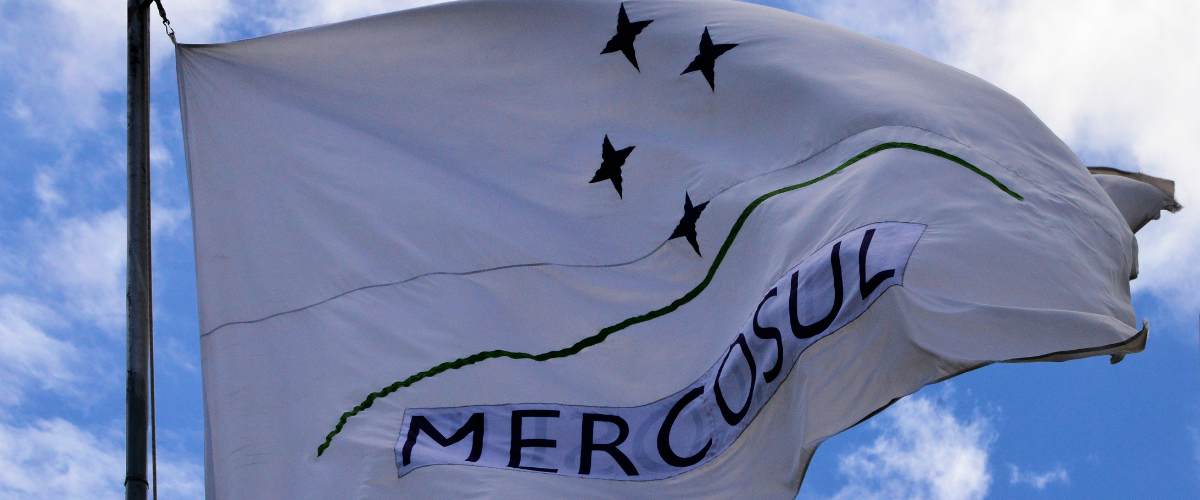
In spite of Mercosur, Brazil wants new import tax cut
Apr, 12, 2022 Posted by Gabriel MalheirosWeek 202215
The Brazilian government is studying a further reduction in the import fees charged by the country without having the endorsement of Mercosur. According to Estadão/Broadcast, the idea is to cut the Import Tax rates by another 10% on most products traded with countries outside the bloc.
In November last year, the Ministries of the Economy and Foreign Affairs announced a 10% reduction in the 87% of the trade tariff package, keeping out goods such as automobiles and sugar and alcohol, which already have a different treatment by the bloc. A new cut of the same amount and with the same exceptions is under study.
Under Mercosur rules, the Common External Tariff (TEC) charged on purchasing products from outside the bloc can only be changed by mutual agreement by the four countries of the bloc – Brazil, Argentina, Paraguay, and Uruguay. To go around that, the Brazilian government must resort to a device that allows adopting measures aimed at “protecting people’s lives and health”.
In November, the Brazilian government stated that, with the coronavirus pandemic, there was a rise in prices that the government could minimize with an “import shock”. Now, with prices rising even more, especially amid the conflict in Eastern Europe, a further temporary reduction in tariffs citing the need to fight inflation is on the radar. The decrease announced last year is valid until the end of this year.
Such a tax cut would reach almost all of the country’s import tariffs. The amount is broader than what had already been announced by the Ministry of Economy in March regarding the cut in the ethanol import tax and six other products that weigh on the inflation: coffee, margarine, cheese, macaroni, sugar and soybean oil.
Last week, Minister Paulo Guedes stated that a decrease in the rate of 12 products with an impact on inflation was to be announced. These punctual reductions are made within the rules of Mercosur, which allows Brazil to reduce taxes on imports of up to 100 items without having to negotiate with other countries. The most comprehensive cut in the bloc’s common external tariff can only be done with the approval of the other partners or using alternatives provided for by law, such as the one adopted by Brazil to justify the November reduction.
For former Foreign Trade Secretary and BMJ consultant Welber Barral, the measure will have little impact on trade since it is a slight reduction. Still, it widens the difference between Brazil’s and Mercosur’s tariffs, which could even lead to legal questions about the validity of the reduction. “It ends up distorting the common external tariff. As a result, there may be controversy in the Mercosur court, and even Brazilian industry may feel affected by the rule, which was not agreed upon within the bloc,” he said.
When contacted, the National Confederation of Industry (CNI) and the Federation of Industries of the State of São Paulo (Fiesp) did not respond.
Change of focus
Since President Jair Bolsonaro took office, Guedes has made clear his intention to cut the Mercosur common tariff permanently. At the beginning of 2021, he even told entrepreneurs that he would like to reduce the TEC by 20% later that year.
The minister’s attempt faced strong resistance from the Argentines – who proposed a 10% cut – despite initial support from Uruguay. But as the year progressed, the situation reversed. Finally, the Brazilians reached an agreement with the Argentines after reducing the size of the intended cut and the number of products reached.
Conversely, the Uruguayans started to entertain supporting a flexibilization of another Mercosur rule: the one that prohibits the negotiation of bilateral agreements, that is, without the participation of all the bloc countries. Brazil is in favour, while Argentina is against easing the rule.
Tariffs
As Mercosur member countries, Brazil, Argentina, Paraguay and Uruguay must charge the same tariff on imports of products from outside the bloc – the so-called Common External Tariff (TEC). The common rate is applied to most imports, with some exceptions agreed with the bloc, such as purchases in the automotive sector, toys, computers and capital goods. The TEC applied varies according to the imported product and is, on average, around 10%.
Negotiations
Since taking office in 2019, the Minister of Economy, Paulo Guedes, has defended a reduction in the TEC to open up the Brazilian market and integrate domestic production with other production chains. This reduction, however, can only be permanently made with the agreement of the other members of Mercosur. The idea, however, faces resistance from Argentina and Uruguay.
Reduction
Without reaching an agreement, Brazil alone reduced the tariffs charged on imports until the end of this year. A first cut was announced at the end of last year, 10%, for practically all rates. For this, the country resorted to a legal instrument that allows the adoption of unilateral measures aimed at “protecting people’s lives and health”.
Second rate cut
A new linear cut of 10% is being studied. As soon as approved, the measure should take effect for the remainder of the year.
Source: O Estado de S. Paulo
To read the full original article, please go to:
-
Economy
Jan, 03, 2023
0
Global economy faces tougher year in 2023, IMF’s Georgieva warns
-
Grains
Sep, 29, 2022
0
Brazil outshines US in soybean export competitiveness, says CEO of Rumo
-
Meat
Nov, 20, 2020
0
China reduces pork imports due to recovering domestic supply
-
Economy
Jul, 26, 2021
0
Trade balance registers a surplus of US$ 6.94 bi up to 4th week of July


